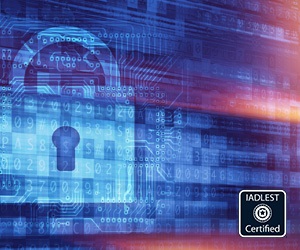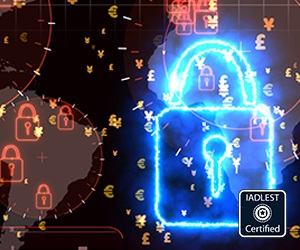When: Nov 21, 2024
Where: In Person | Virtual | Hybrid
FutureCon Events brings high-level Cyber Security Training discovering cutting-edge security approaches, managing risk in the ever-changing threat of the cybersecurity workforce.
Join us as we talk with a panel of C-level executives who have effectively mitigated the risk of Cyber Attacks.
Educating C-suite executives and CISOs (chief information security officers) on the global cybercrime epidemic, and how to build Cyber Resilient organizations.
» Read more
Click here for more information

The first module of this course covers fundamentals such as recognizing computer components and their functions, accessing computer firmware, and the startup and shutdown processes. The second module covers how a hard disk drive works, how data is converted into digital information, how to calculate the storage capacity of a device, partitioning and how that is used for storage, and how a solid state hard drive functions.
» Read more
Click here for more information

This course provides an introduction to data encryption, covering the purpose of encryption as well as the process of encrypting data, and clarifying the distinctions between encryption and other operations like password protection and encoding. It explores the confusion, diffusion, and secret key encryption methods. Topics include detecting encryption (including recognition of some of the most popular types of encryption software), as well as proper procedures for law enforcement professionals who detect that encryption may be present on a device.
» Read more
Click here for more information

Trust is an essential component for reducing friction between people, organizations, government, and other entities. When trust is high, people are more willing to cooperate, require less assurances for doing so, and are less skeptical of the outcomes. Unfortunately, today’s climate of manipulated media, deep fakes, conflicting sources of information, and sensationalized news has raised many people’s level of skepticism. This makes building and maintaining trust particularly difficult but also incredibly important. This course will provide an overview of factors that contribute to public trust in law enforcement’s use of current and emerging digital technologies.
» Read more
Click here for more information

This course focuses on practical online search techniques. Students will learn about using the advanced features of popular search engines, accessing cached versions of websites, searching with images, and common signs of fake and manipulated images. This course is part of the Open Source Intelligence Modules. It can be completed as a stand-alone course or in combination with the other courses.
» Read more
Click here for more information

According to the FBI’s Internet Crime Complaint Center (IC3), ransomware attacks lead to several billion dollars lost each year. Law enforcement officers should know how to respond to and protect their agencies and communities from these attacks. This interactive module teaches participants how to recognize and respond to a ransomware attack and discusses how ransomware can affect devices and networks and how to prevent ransomware attacks.
» Read more
Click here for more information
This course covers the skills and techniques involved in responding to a network security incident. The course focuses on the identification, extraction, and detailed examination of artifacts associated with network and intrusions. Memory analysis, host machine forensics, network traffic and log analysis, malware analysis, and virtual machine sandboxing are covered through lecture, discussion, and hands-on exercises. Additional topics include key cybersecurity concepts and issues, as well as the various classifications and types of network attacks.
» Read more
Click here for more information










